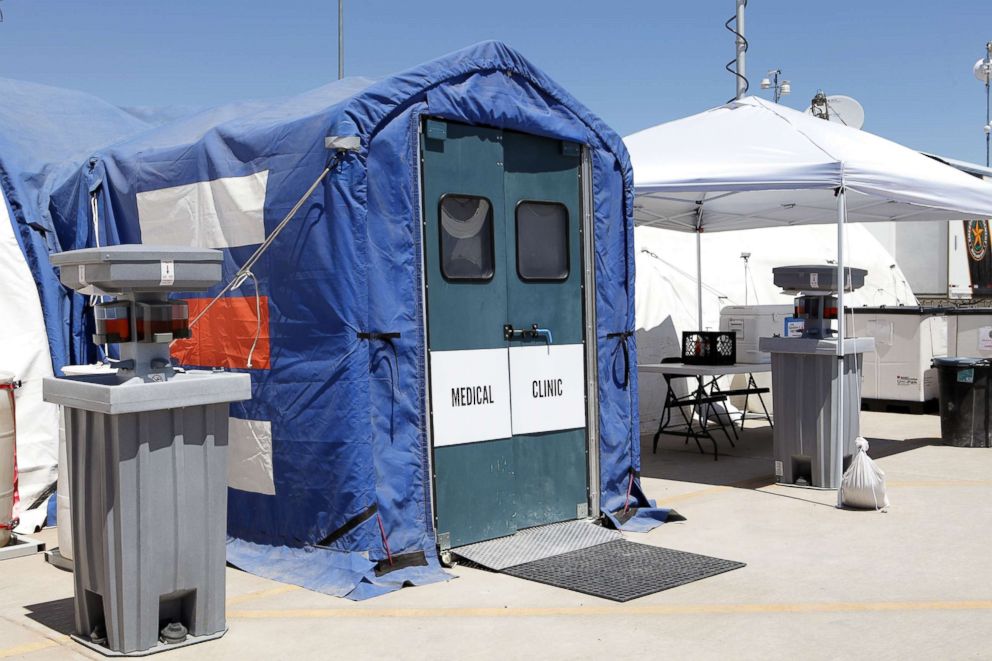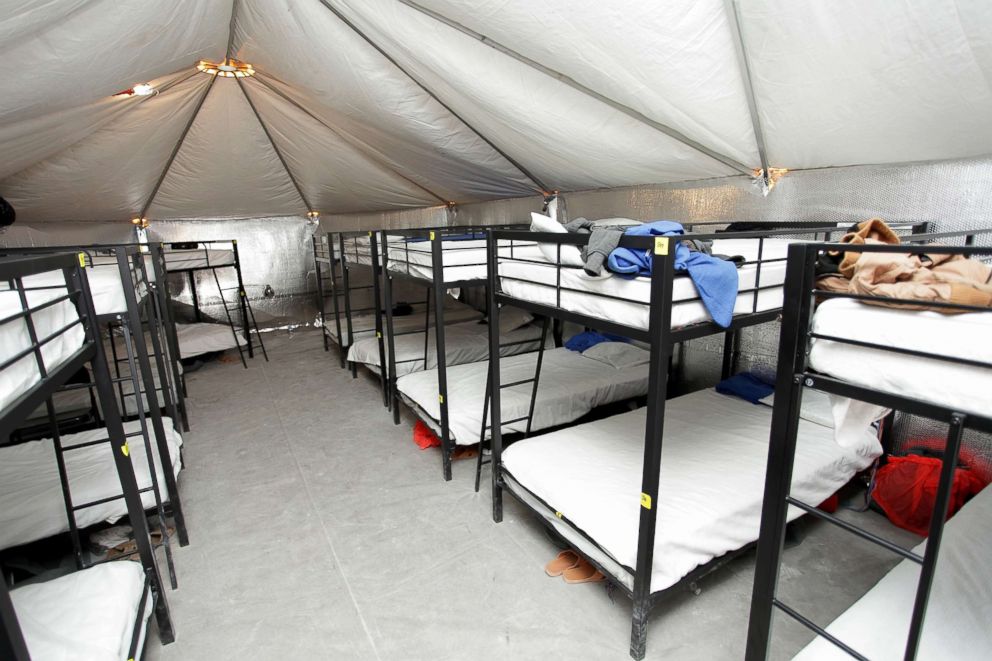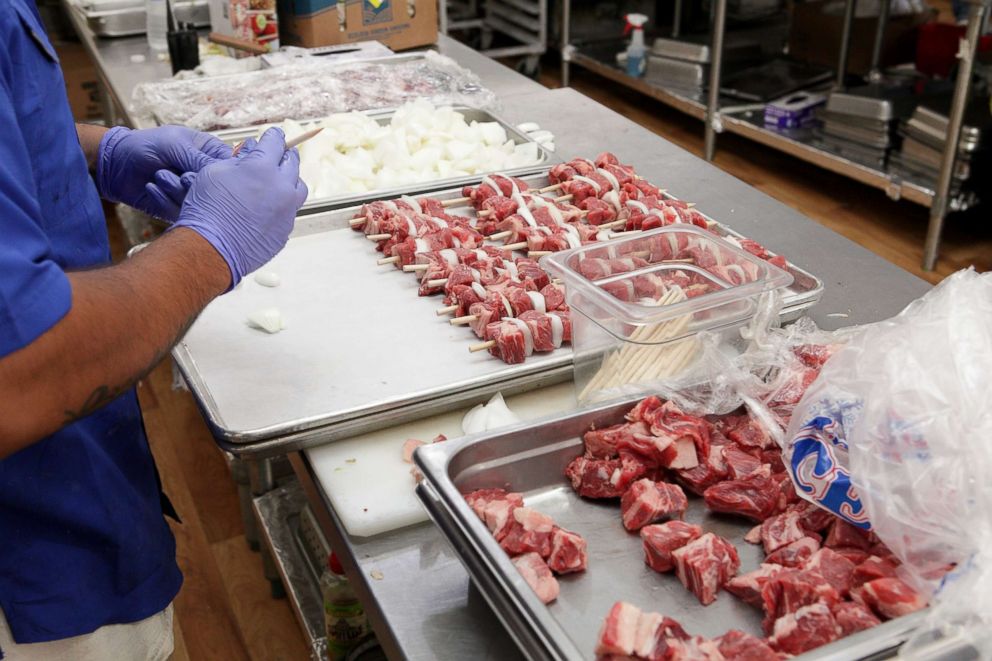Inside a makeshift tent city near the border housing hundreds of migrant teens
A Texas facility houses more than 300 migrant teens.
Inside a makeshift tent city in Texas for migrant teens, a reporter saw drawings on walls of the youths' sleeping quarters, including one that read: "100 percent Honduran, traveled 10,000 km to reach the US."
The tent city near the U.S. border with Mexico is less than 3,000 kilometers from Honduras, or about 1,700 miles. But for the as many as 326 migrant youth staying at the facility alone without their parents it may feel like even further.
An ABC News reporter touring the facility in Tornillo, Texas, on Monday saw two teens who appeared to be 13 or 14 years old sobbing while on the phone, perhaps on calls with family far away in Central or South America.
Each of the children at the tent city is granted two 10-minute phone calls per week, an official said.

Most of the hundreds of migrant youth at the facility are unaccompanied minors who came to the U.S. without adults.
But about two dozen are recent arrivals who were separated from family members after crossing the U.S. border. Three of those youth were returned to their family members Monday.
The youth are living in tents that have previously been used to house survivors of hurricanes, officials said. There are 20 tents meticulously erected in two rows, the majority of them housing boys. Only two tents are assigned to girls, who have their own bathrooms and dining area.

ABC News was one of several other outlets granted permission to tour the Tornillo tent city on Monday.
The youth at the tent city live in sterile sleeping quarters with about 10 bunk beds per room, each fitted with white sheets and blue blankets. And yet, on some of the bed frames are pops of color coming from ripped sheets of paper from coloring books.
Everything from leisure activities like playing soccer on green rectangular fields to sleeping or showering is scheduled.
A recreational soccer match appeared to offer some distraction for the teens, with some even smiling. Just feet away were warning signs to beware of rattlesnakes.
Photos and video footage curated and released by the U.S. Department of Health and Human Services show youth at the facility being fed hand-prepared Latin cuisine. The gloved hands of one cook is seen skewering plump chunks of meat and onions and lining up kabobs on a metal tray.
Some of the empty beds that were photographed and released to the public have discarded deck of cards or crayons with an Avengers coloring book on it. One bed had a discarded Bible translated in Spanish resting against its pillow.





